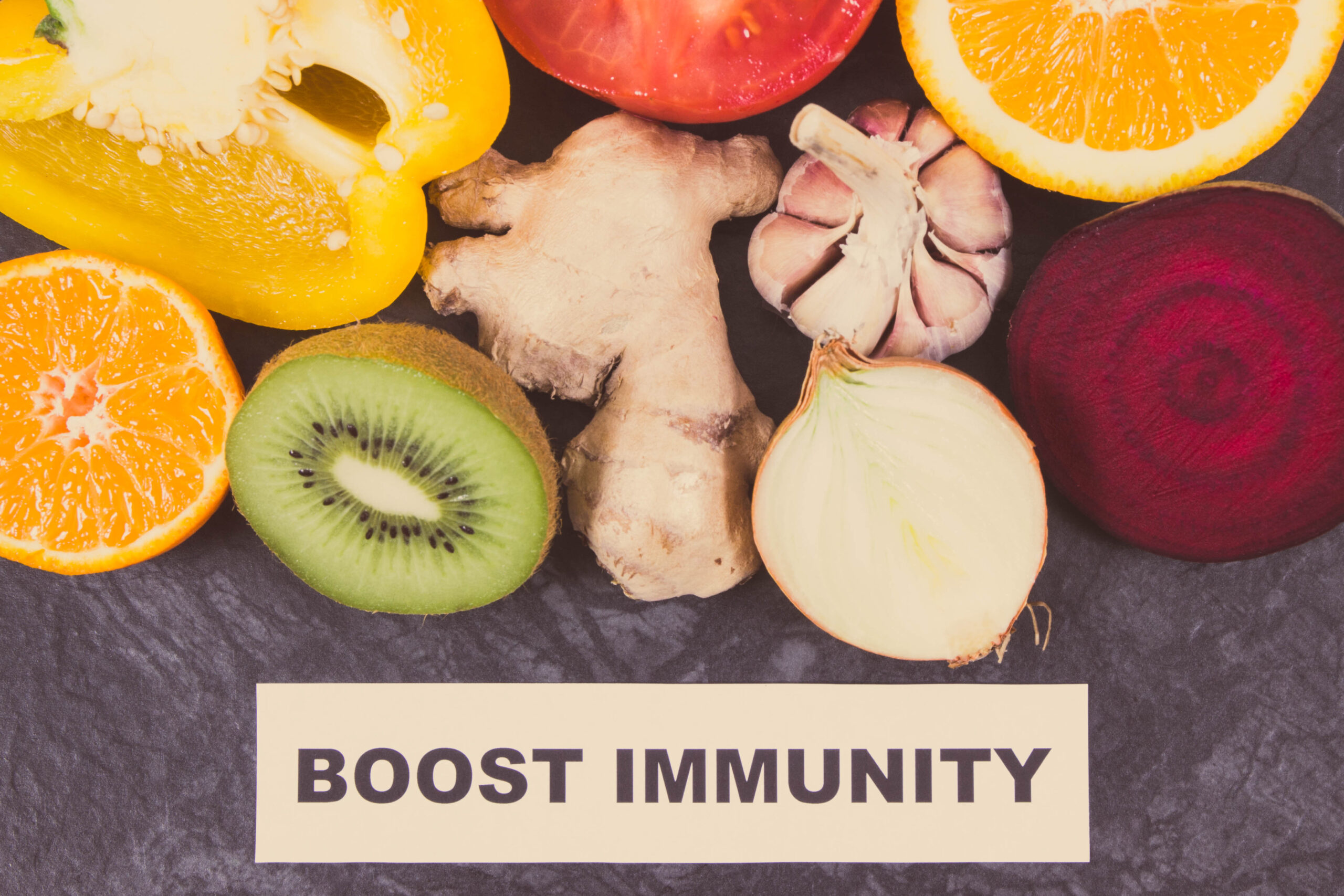
10 Simple Tips to Boost Your Immune System
Small coughs, colds, flu, and so on. All these annoyances could, if not completely eliminated, at least be greatly reduced if our immune system were functioning optimally. Having a strong immune system means putting every chance on your side to stay healthy and prevent illness. The COVID-19 pandemic showed us just how important it is to take measures to boost our immunity. Fortunately, there are simple yet effective ways to strengthen your immune system without resorting to costly supplements or radical lifestyle changes. In this blog post, we will explore 10 easy-to-integrate tips for your daily routine to help your immune system perform at its best.
Don’t neglect sleep quality
1. Get enough sleep. The amount of sleep needed varies with age. Meeting your sleep requirements not only ensures rest and recovery for your body but also empowers it to fight off infections. Adults generally need about 6 to 8 hours per night, teenagers need 9 to 10 hours, and newborns require 15 to 17 hours of sleep per day.
To fall asleep more easily and improve sleep quality, establish a consistent bedtime routine—drink a warm beverage, meditate for five minutes, avoid screens. Set regular bedtimes and wake times; your body will adjust over time. Also watch your diet: heavy meals can disrupt sleep, so opt for lighter dinners. Finally, create a calming bedroom environment: dim lighting, a comfortable temperature, and no stimulating devices like TVs.
Eat a healthy, balanced, and varied diet
2. Eat colorful fruits and vegetables, spices, and antioxidant drinks. Fruits and vegetables are packed with vitamins, minerals, antioxidants, and other compounds that support your immune system. Because antioxidants vary by color, include a rainbow of produce in your diet. Leafy greens like spinach and all kinds of cabbage boost immunity. Red fruits and veggies, rich in lycopene, help protect white blood cells. Blue-purple foods, such as beets, provide vitamins A, B, and C. Vitamin C in citrus fruits enhances white blood cells’ microbe-fighting ability and helps clear out spent immune cells.

Among antioxidant drinks, green tea is excellent when consumed between meals. We also recommend dark chocolate with at least 74% cocoa for its antioxidant benefits.
Finally, spices offer anti-inflammatory and antimicrobial effects that protect and stimulate immunity. Use turmeric, curry, cinnamon, and ginger as seasonings or infusions.
Complement these foods with bee products (honey, propolis), walnut oils rich in omega-3s, and certain shellfish (oysters, whelks), as well as fermented foods.
Exercise regularly
3. Engage in regular physical activity. Exercise boosts immunity by improving antibody circulation and reducing stress, which can otherwise weaken immunity. However, prolonged intense exercise releases stress hormones repeatedly, which may increase infection risk. Aim for 30 to 60 minutes of moderate-to-vigorous activity daily to reap benefits without overtaxing your immune system.
Stay well-hydrated
4. Drink plenty of fluids. Staying hydrated helps flush out toxins and waste, supporting immune function. Aim for 1–1.5 L of water per day, up to 2 L if you are very active. Herbal teas and water-rich foods also count. A simple goal: drink a glass of water every hour or at least eight glasses per day.

Cut back on sugar
5. Reduce sugar intake. Excess sugar disrupts the gut microbiome. The microbiome comprises bacteria, viruses, parasites, and non-pathogenic fungi living in specific body sites. High sugar diets can lead to metabolic syndrome—abdominal fat and insulin resistance. That increases risks for heart disease, stroke, type 2 diabetes, fatty liver disease, kidney disease, sleep apnea, and reproductive issues.
Limit processed and sugary foods, replacing them with healthier options like fruits and vegetables.
Manage stress
6. Control stress levels. Studies show chronic stress impairs immune defenses, making you more susceptible to infection. Reduce stress with activities like yoga, meditation, or time spent in nature.

Get your flu shot
7. Vaccinate against the flu annually. A flu vaccine helps your body build immunity to the strains most likely to circulate each season.
Consider immune-boosting supplements
8. Take targeted supplements. Vitamin C, zinc, royal jelly, spirulina, echinacea, propolis, and probiotics can support immunity. Always consult a doctor before starting any supplement to ensure safety. Supplements come in capsules, gels, ampoules, or gummies.
Avoid alcohol and tobacco
9. Reduce alcohol consumption: Alcohol weakens immune function, especially in the lungs, increasing risk of respiratory infections like pneumonia and acute respiratory distress syndrome. Chronic drinking lowers lung defenses and raises susceptibility to common colds and infections.
Avoid smoking: Chronic cigarette smoke significantly alters immune function, contributing to atherosclerosis, COPD, lung cancer, and respiratory infections. Secondhand smoke poses similar risks.
Smoking impairs gum blood flow, alters oral bacteria, and weakens immune defenses, increasing periodontal disease risk.
If you smoke, consider professional support for quitting or nicotine replacement therapies like patches or gum.
Practice good hygiene
10. Wash your hands frequently: Regular handwashing with soap and water is one of the easiest ways to prevent germs and bacteria from entering your body. Wash before eating, after using the restroom, and after contact with sick individuals.

Caring for your immune system is essential to staying healthy. The simple tips above can help strengthen your immunity and protect against infections. Start today by integrating these healthy habits into your daily routine.
SennaCare connects you with healthcare professionals to support your needs. Don’t hesitate to reach out to us for any assistance.
